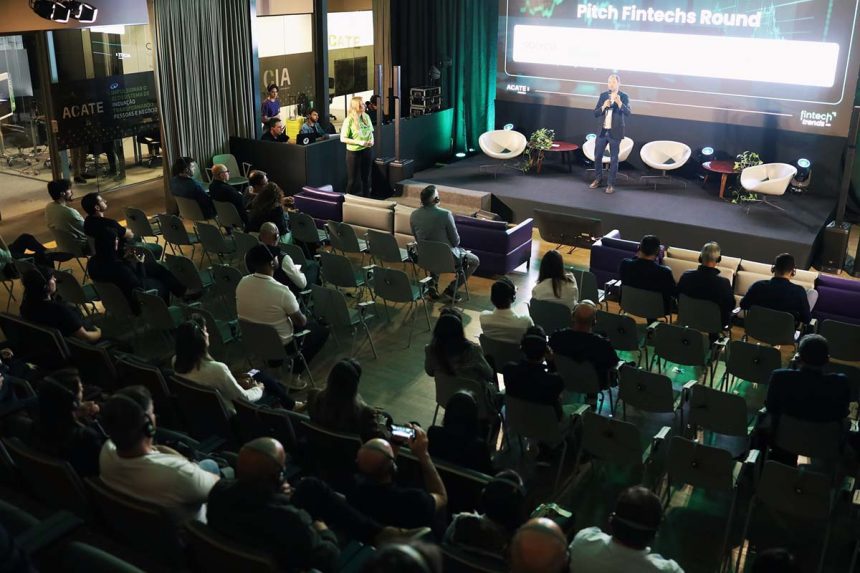The advancement of financial innovation in Brazil requires more than technological infrastructure and digital solutions, it depends on trust as a social strategy, capable of uniting public and private actors around safe, collaborative, and transparent practices.
That was the message from André Henrique de Siqueira, Head of the Analytical Intelligence Division at the Central Bank of Brazil, during his keynote closing speech at Fintech Trends 2025, held on Thursday, 30. “Objective trust is not an individual virtue but a value of social relationships, built when we reduce the complexity of systems. Only then can customers, investors, and regulators feel safe to operate in the new digital environment”.
The event, promoted by the Fintech Vertical of the Santa Catarina Association of Technology (Acate), gathered around 500 participants in a hybrid format, with on-site sessions at CIA Primavera in Florianópolis (SC) and live streaming.
Now in its third edition, Fintech Trends has become a reference platform for discussing the evolution of Brazil’s digital financial sector, bringing together representatives from the market, startups, investors, and public institutions.
For Siqueira, the expansion of financial technologies brings challenges that cannot be solved by regulation and supervision alone. He emphasized the need to strengthen innovation governance, involving all stakeholders impacted by the sector’s transformations. “We won’t get everything right at first, but we need to listen to those affected by each new technology to identify risks and protect the system,” he said.
He also highlighted that this collaborative process is essential to deal with what he called the “supra-regulatory perimeter”, when innovations develop beyond the traditional scope of supervision. “Innovation moves fast, and so do the risks. The role of trust is to reduce complexity and create security in an increasingly dynamic environment,” Siqueira added.
The infrastructure of the new economy
Other key themes shaping the future of digital finance were discussed throughout the event. The panel on new economy infrastructure addressed decentralized protocols, blockchain adoption, and hybrid payment systems. Another discussion on embedded finance explored how non-financial companies can integrate financial services directly into their business models.
Open Finance emerged as a major driver of transformation in customer experience — highlighting progress in data governance, credit portability, and personalized product offerings based on financial profiles. Artificial intelligence (AI) was also presented as a core technology for automating decisions, preventing fraud, and creating value through behavioral analysis.
ESG, impact capital, and fintech innovation
Fintech Trends 2025 also explored the future of the payments market and fintech innovation, including discussions on impact capital, ESG principles, and green credit. The event featured a pitch session where fintech startups presented innovative solutions in credit, payments, financial management, and integrated banking services.
According to Ricardo Toledo, Director of Acate’s Fintech Vertical, the event reinforces Santa Catarina’s position as a leading innovation hub in Brazil’s financial ecosystem. “Fintech Trends sparks reflection on the possible paths for financial innovation and highlights how trust, collaboration, and intelligent data use will shape the pillars of the new economy,” Toledo said.
Sponsors and partners
Fintech Trends 2025 was sponsored by Solana, b/luz law firm, Finscale, Triven, Dell Technologies, Eroles Advogados, Zarv, CréditoAI, Passeio Primavera, Edunext, and Quyta. Supporting partners included Abcripto, Abfintechs, Acrefi, Darwin Startups, Fenasbac, and Nexpon.


